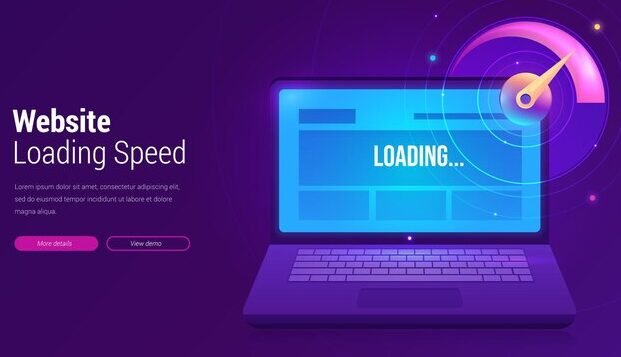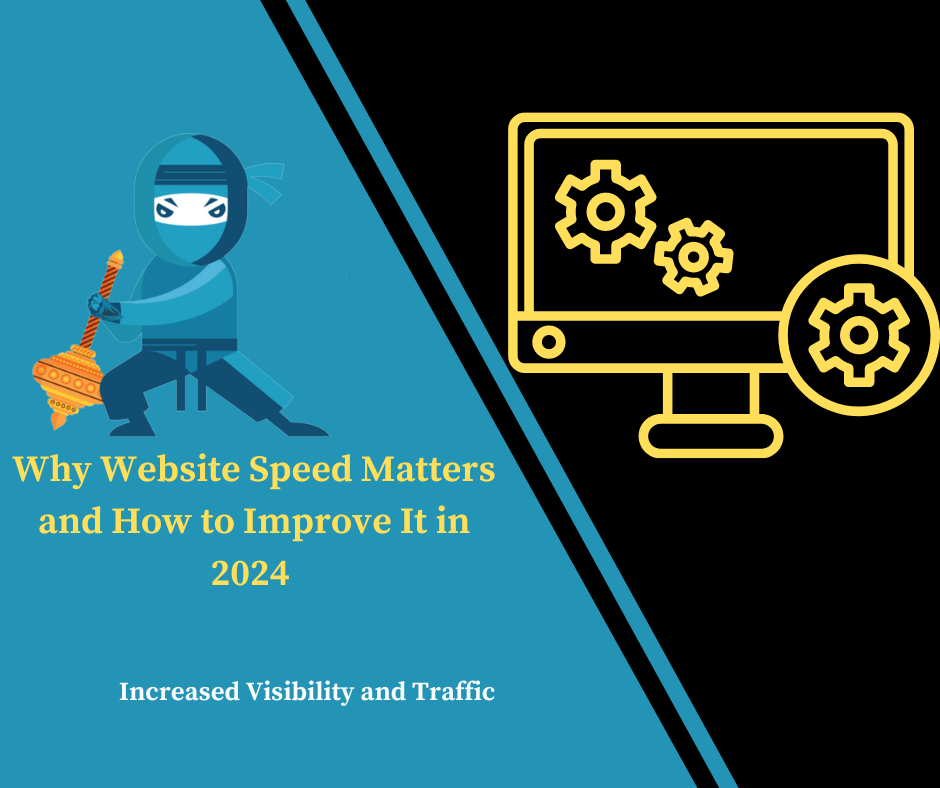Why Website Speed Matters and How to Improve It in 2024
In today’s digital landscape, where the competition for users’ attention is fierce and patience is thin, website speed has become a crucial factor in delivering an optimal online experience. As we move through 2024, the importance of website speed cannot be overstated. It affects everything from user satisfaction to search engine rankings. This article will delve into why website speed matters and provide actionable strategies to enhance it in 2024.
The Importance of Website Speed
Website speed is more than just a performance metric; it’s a cornerstone of user experience and business success. Here’s why it matters:
1. User Experience
The speed at which your website loads directly impacts user experience. Research indicates that users expect a webpage to load within two seconds. If your site is slower than this, users are likely to become frustrated and abandon it. A fast-loading site keeps users engaged and reduces bounce rates, leading to a more satisfactory user experience.
2. Conversion Rates
There is a clear correlation between website speed and conversion rates. Studies show that a one-second delay in page load time can result in a 7% reduction in conversions. For e-commerce sites, this can mean substantial revenue losses. Improving website speed can lead to a more seamless shopping experience, boosting conversion rates and increasing sales.
3. Search Engine Optimization (SEO)
Search engines like Google consider website speed as a ranking factor. Google’s algorithms evaluate page loading times as part of their ranking criteria. Faster websites are more likely to achieve higher rankings in search results, which can drive more organic traffic to your site. In 2024, SEO continues to prioritize website speed as part of its Core Web Vitals, which assess loading performance, interactivity, and visual stability.
4. Mobile Users
Mobile device usage continues to rise, and users accessing your site on mobile networks often experience slower speeds compared to desktop connections. Optimizing website speed for mobile users is essential for providing a smooth and efficient browsing experience. A slow mobile site can lead to higher bounce rates and lost opportunities.
5 Common E-Commerce Mistakes That Are Costing You Sales
5. Technical Efficiency
Faster website speed translates into better server efficiency. By reducing the load on your server and optimizing resource delivery, you can lower bandwidth costs and improve overall site performance. This can lead to cost savings and a more scalable website.

Strategies to Improve Website Speed in 2024
1. Optimize Images
Images are often the largest files on a website and can significantly impact website speed:
Resize Images: Use appropriate dimensions and resolutions for images. Avoid using oversized images that can slow down load times.
Compress Images: Employ image compression tools or plugins to reduce file sizes while maintaining quality.
Use Modern Formats: Consider using modern image formats like WebP, which offer better compression and faster loading times compared to traditional formats like JPEG and PNG.
2. Leverage Browser Caching
Browser caching allows frequently accessed resources to be stored locally on a user’s device, reducing the need to re-download them on subsequent visits:
Set Expiry Dates: Configure cache headers to specify how long resources should be cached.
Use Caching Plugins: For websites using CMS platforms like WordPress, install caching plugins to manage and enhance browser caching.
3. Minimize HTTP Requests
Reducing the number of HTTP requests can improve website speed:
Combine Files: Merge CSS and JavaScript files to minimize the number of requests.
Use CSS Sprites: Combine multiple images into a single CSS sprite to reduce HTTP requests for images.
4. Enable Compression
Enabling compression reduces the size of files transmitted between the server and the user’s browser:
GZIP Compression: Enable GZIP compression on your server to compress text files such as HTML, CSS, and JavaScript.
Brotli Compression: Consider using Brotli, a newer compression algorithm that can provide better compression rates than GZIP.
5. Implement Content Delivery Networks (CDNs)
A CDN distributes your website’s static content across multiple servers located around the world, reducing the distance between the user and the server:
Choose a CDN Provider: Select a reliable CDN provider that offers extensive global coverage and performance benefits.
Configure CDN: Set up your CDN to cache and deliver static content like images, CSS, and JavaScript files efficiently.
6. Optimize Code
Efficient coding practices contribute to improved website speed:
Minify Code: Remove unnecessary characters, comments, and whitespace from CSS, JavaScript, and HTML files to reduce their size.
Asynchronous Loading: Load JavaScript files asynchronously to prevent them from blocking the rendering of the page.
7. Upgrade Hosting
The quality of your web hosting can influence website speed:
Choose a Reputable Host: Opt for a hosting provider known for performance and reliability.
Consider VPS or Dedicated Hosting: For high-traffic websites, consider VPS (Virtual Private Server) or dedicated hosting to ensure better performance compared to shared hosting.
8. Regular Monitoring and Testing
Consistent monitoring and testing are essential for maintaining optimal website speed:
Use Performance Tools: Utilize tools like Google PageSpeed Insights, GTmetrix, and Pingdom to test your website’s speed and receive performance recommendations.
Monitor Performance Metrics: Track metrics such as page load times, server response times, and user interactions to ensure consistent performance.
FAQ
What is the ideal website loading time for optimal user experience?
The ideal loading time for a website is within two seconds. Users expect a quick loading experience, and anything longer can lead to increased bounce rates and dissatisfaction.
How does website speed impact SEO?
Website speed is a significant factor in SEO. Search engines like Google use speed as a ranking criterion. Faster websites are more likely to rank higher in search results, which can drive more organic traffic to your site.
What are some effective tools for testing website speed?
Effective tools for testing website speed include Google PageSpeed Insights, GTmetrix, Pingdom, and WebPageTest. These tools provide insights into performance metrics and offer recommendations for improvement.
How frequently should I check my website’s speed?
It is recommended to check your website’s speed at least once a month. Additionally, perform tests whenever significant changes are made to your site, such as updates or new content additions.
Why is optimizing website speed important for mobile users?
Mobile users often experience slower network connections compared to desktop users. Optimizing website speed for mobile ensures a seamless browsing experience, reduces bounce rates, and enhances user satisfaction on mobile devices.
What is browser caching and how does it improve website speed?
Browser caching stores copies of your website’s resources on a user’s device. This reduces the need to re-download these resources on subsequent visits, speeding up the loading process and improving overall website speed.
How do I choose the What is browser caching?
Choose a CDN provider based on factors like global network coverage, performance, reliability, security features, and customer support. Research and compare providers to find one that meets your website’s specific needs.
Conclusion
In 2024, website speed remains a critical element of online success. By understanding the importance of website speed and implementing effective optimization strategies, you can enhance user experience, improve SEO rankings, and drive higher conversion rates. Regular monitoring and adaptation to new technologies will ensure that your website remains fast and efficient in a rapidly evolving digital environment.








